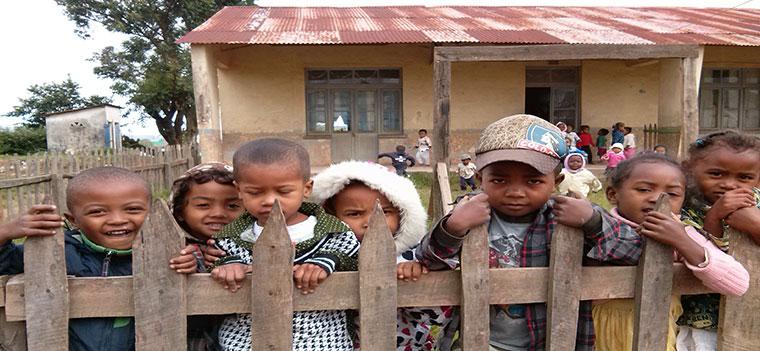News
Story Highlights
- Lack of access to adequate and reliable energy has been a major impediment to Madagascar’s economic and social development.
- A key solution to increasing access is to help Madagascar diversify its energy mix. In addition to solar and wind power, hydropower represents one of the most promising sources of power.
- With ESMAP’s support, the World Bank has stepped in to help the government develop priority small hydropower sites in the country.
Helping Madagascar to Increase Access to Electricity and Strengthen Sector Performance
September 01 2016
Lack of access to adequate and reliable energy has been a major impediment to Madagascar’s economic and social development. It makes it difficult to deliver basic social services or do business, which negatively affects the country’s investment climate. Only 15% of the population has access to electricity. In addition, infrastructure is outdated, and existing generation, transmission, and distribution facilities are not able to meet growing demand. With frequent power outages, the government has been responding to emergencies by providing expensive thermal generators, running mainly on diesel.
Madagascar is emerging from several years of turmoil, following the most recent political crisis in 2009. The country is ranked last in terms of Doing Business regarding the difficulty, delay, and cost of accessing electricity. With an increasingly deteriorating power infrastructure and a depleted work force, JIRAMA - the state-run electricity utility – is under operational and financial stress and struggling to keep the lights on.
Realizing JIRAMA’s role in increasing access to energy for millions of people, the government partnered with the World Bank on the recently approved Electricity Sector Operations & Governance Improvement Project (ESOGIP). The project provides technical assistance to improve the governance and operational performance of JIRAMA, improve the reliability of electricity supply in the project area and, in the event of an emergency, to provide immediate and effective response.
This project is already supporting the sector reforms needed to put JIRAMA on a more sustainable path. One of the areas of focus is to help Madagascar diversify its energy mix towards environmental and fiscal sustainability. In addition to existing renewable energy sources such as solar and wind power, hydropower represents one of the most promising sources of power in the country. As such, the government has made its development a priority for generating reliable energy.
With support from the Energy Sector Management Assistance Program (ESMAP), the World Bank is helping the government develop priority small hydropower sites in the country. The work will support the preparation and tendering of small hydropower Independent Power Projects (IPPs) and strengthen governance to manage these with efficiency, transparency, and accountability. Specifically, activities in the project aim at creating the building blocks to attract private sector investment and additional funding from development partners to support increased electricity access. This will be achieved through support for the preparation of project documentation, safeguards, and standard Power Purchase Agreements (PPAs) and through background support leading to the launch of competitive processes for the development of small hydro sites which are being identified under the resource mapping project supported by ESMAP. ESMAP’s resource mapping project and this work can help tap into this enormous renewable energy potential which has remained largely unexploited due to lack of information on resource potential, governance challenges and financial constraints in the sector.
Learn more about the Renewable Energy Resource Mapping Initiative.
